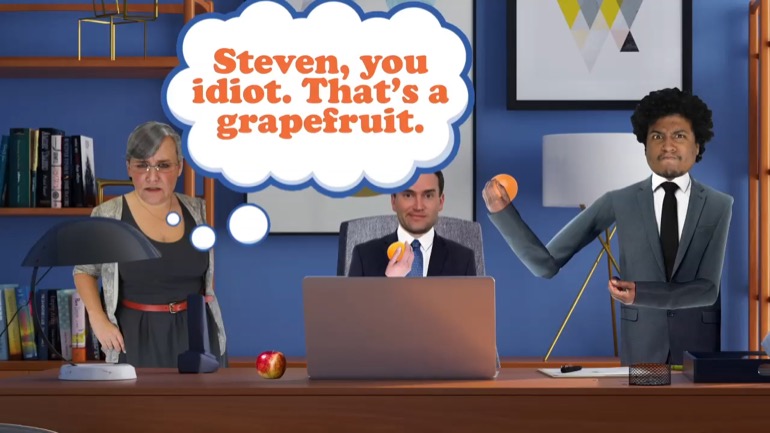ShmoopTube
Where Monty Python meets your 10th grade teacher.
Search Thousands of Shmoop Videos
Charts Videos 93 videos
What is Devaluation? The process by which a nation deliberately lowers the value of its currency relative to other international currencies is call...
A secular trend is something that changes over time, but is not necessarily an element in a repeated, continuing cycle.
What is the Advance Decline Ratio? The advance decline ratio is used to determine how the market performed on a given day. It does this by comparin...
Finance: What are High Yield/Junk Bonds? 19 Views
Share It!
Description:
What are high yield/junk bonds? Junk bonds are called junk for a reason. They are really risky, but because of this risk, they can pay very well. They also have low credit ratings. The reason they are so risky is because the companies that issue them are usually in some sort of financial distress, and it’s believed that they will struggle to repay them. So they promise high interest payments to obtain the income from bond purchases.
- Social Studies / Finance
- Finance / Financial Responsibility
- Life Skills / Personal Finance
- Finance / Finance Definitions
- Life Skills / Finance Definitions
- Finance / Personal Finance
- Finance and Economics / Terms and Concepts
- Subjects / Finance and Economics
- Terms and Concepts / Accounting
- Terms and Concepts / Banking
- Terms and Concepts / Bonds
- Terms and Concepts / Charts
- Terms and Concepts / Company Management
- Terms and Concepts / Company Valuation
- Terms and Concepts / Credit
- Terms and Concepts / Derivatives
- Terms and Concepts / Econ
- Terms and Concepts / Education
- Terms and Concepts / Financial Theory
- Terms and Concepts / Forex
- Terms and Concepts / Index Funds
- Terms and Concepts / Investing
- Terms and Concepts / Managed Funds
- Terms and Concepts / Metrics
- Terms and Concepts / Muni Bonds
- Terms and Concepts / Mutual Funds
- Terms and Concepts / Regulations
- Terms and Concepts / Retirement
- Terms and Concepts / Stocks
- Terms and Concepts / Wealth
- College and Career / Personal Finance
- Courses / Finance Concepts
Transcript
- 00:00
finance a la shmoop. what are high-yield or junk bonds? alright well here are low
- 00:08
yield bonds, you know Apple Microsoft you know, safe secure sleep [charts]
- 00:12
like a baby even for Chicken Little those kind of bonds. the sky is not
- 00:17
falling. all right well here are high-yield bonds Sears you know Toys R
- 00:20
Us aren't they bankrupt already best buy well someday bankrupt ,yeah not safe not
Full Transcript
- 00:25
secure, the sky among other things like credit ratings is in fact falling. well [definitions on screen]
- 00:32
why do high-yield bonds yield a lot that is they pay a lot of interest to
- 00:36
investors why do they do that answer because they have to. right but
- 00:40
why why do they have to? well because the bonds are risky either the business is
- 00:45
in danger of dying, or the business has borrowed so much money that it's in [ best buy pictured]
- 00:50
danger of not being able to pay back the loans. that is their operating profit is
- 00:54
just barely enough to pay the interest costs on all the loans they've borrowed
- 00:59
so the risk of default is high and investors demand very high interest for
- 01:04
taking on the risk of having to go through a potential bankruptcy. the term
- 01:08
junk was coined in the 1980s when the now-defunct investment bank Drexel [100 dollar bill]
- 01:13
Burnham Lambert sold boatloads of bonds which had dubious creditworthiness in
- 01:17
weak backing and so the boatloads of bonds sank and ended up as basically
- 01:23
junk. and not the Chinese junk that actually sales, a different kind of junk.
- 01:27
anyway unlike your fancy triple-a bonds which you can see here on this lovely [ boat sails on a lake]
- 01:31
table ,those junk bonds were riskier than us women in shark-infested waters with a
- 01:36
bloody nose. so what's the best way to encourage people to do risky possibly
- 01:40
dangerous things ?well pay them a lot of money. so that's why junk bonds yield
- 01:45
such killer returns for investors because otherwise well these things [two people frown in front of bond store]
- 01:49
would never leave the shelf.
Related Videos
What is bankruptcy? Deadbeats who can't pay their bills declare bankruptcy. Either they borrowed too much money, or the business fell apart. They t...
What's a dividend? At will, the board of directors can pay a dividend on common stock. Usually, that payout is some percentage less than 100 of ear...
How are risk and reward related? Take more risk, expect more reward. A lottery ticket might be worth a billion dollars, but if the odds are one in...
GED Social Studies 1.1 Civics and Government

































































































